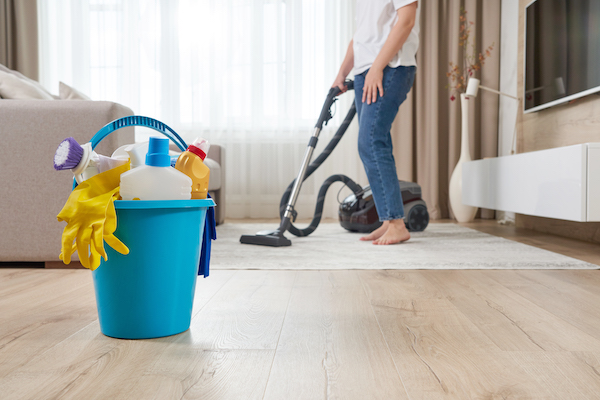Injection Molding,Polycarbonate Injection Molding,Custom Injection Molding,Thermoplastic Injection Molding Ningbo Rongna Technology Co.,Ltd , https://www.service-machining.com
How To Improve Your Cleaning Process
It’s no secret that everyone wants their homes to be spotless. But, what’s the most efficient way to achieve that? This blog post will explore how you can refine your cleaning techniques and ensure your cleaning services always deliver the best results!
In this article, we’ll dive into various methods to enhance your cleaning process. Whether you’re a residential or commercial cleaner, there are plenty of strategies to boost the quality of your work and keep your clients happy. From tackling tough spots to managing client expectations, we’ll cover it all.
Are you looking to achieve dazzling results without putting in excessive effort? Simple tips and tricks can make your cleaning routine more manageable. Let’s examine what constitutes an effective cleaning regimen, along with the tools you’ll need to maintain pristine spaces!

### 8 Ways to Elevate Your Cleaning Game
In today’s competitive market, getting the most value for your money is crucial. Ensuring items are properly cleaned is one way to maximize your efficiency. Here are some practical tips to enhance your cleaning process.
#### 1. Reduce Problem Areas
Problem areas refer to parts of an item that cannot be removed during cleaning due to stains embedded in the material or insufficient liquid penetration. By selecting a more effective cleaning agent, you can minimize these issues and ensure your items look impeccable.
#### 2. Implement a Liquid-Free Drying System (LFDDS)
Liquids can attract pests due to sugars they contain. By reducing excess liquid, you decrease the likelihood of pest infestations during storage or display. The right tools make all the difference.
#### 3. Choose the Right Drying Method
The drying method depends on your facility and the items being cleaned. Pins can help maintain shape, while racks promote airflow for thorough drying. Covering hangers prevents snags and tears.
#### 4. Clean Non-Dry-Clean Items First
Many brands label items as “dry-clean only†to justify higher prices. However, cleaning these items before drying eliminates the need for additional steps, saving time and effort.
#### 5. Avoid Overcrowding Your Facility
Sanitary conditions require adequate space around equipment. Pushing too much equipment against walls increases the risk of pest infestations, compromising cleanliness.
#### 6. Experiment with Various Cleaning Techniques
Different cleaning methods suit different materials and timelines. Steam systems are fast but can damage delicate fabrics, while carbon dioxide systems are gentler but slower. Both can reactivate certain stains.
#### 7. Select Appropriate Cleaning Agents
The same item may require different agents based on the type of soil. An oil-based stain needs a different approach than a water-based one, requiring adjustments in temperature and time.
#### 8. Assign a Supervisor for All Operations
Expensive items demand careful handling. A dedicated supervisor ensures no mistakes are made, preserving the integrity of every item.
---
### The 7 Steps of the Cleaning Process
#### 1. Prepare
Before starting, gather necessary equipment and ensure surfaces are prepped. Cleaners should wear uniforms.
#### 2. Pre-Treat
Apply a detergent solution to heavily soiled areas using a spray bottle.
#### 3. Heavy Cleaning
Scrub the surface thoroughly with a pad or brush.
#### 4. Rinse
Remove residues and detergent using high-pressure water.
#### 5. Dry
Use a squeegee or absorbent cloth to eliminate moisture.
#### 6. Sanitize
Apply sanitizers to prevent bacterial growth.
#### 7. Apply Wax or Sealant
Protect surfaces with wax or sealants to prevent future damage.
---
### Enhancing Your Cleaning Business
Improving your cleaning business involves continuous innovation. Here are some actionable steps:
#### 1. Conduct Internal Audits
Evaluate quality, productivity, and service standards. Track time spent on each task and establish benchmarks.
#### 2. Measure Time Efficiency
Track how long it takes you to clean and compare it with your team’s performance.
#### 3. Develop a Standardized Checklist
Create a checklist for initial visits and reuse it consistently.
#### 4. Utilize Floor Plans
Map efficient routes to minimize unnecessary movement.
#### 5. Explore New Technologies
Stay updated on tools and innovations that can streamline workflows.
#### 6. Lead by Example
Demonstrate the best practices in work ethic, attendance, and punctuality.
#### 7. Commit to Constant Improvement
Adopt progressive approaches to enhance service quality and efficiency.
In conclusion, proper cleaning isn’t just about effort—it’s about precision. Stay informed through suppliers, industry publications, and trade organizations to maintain excellence.
Next Article
Fatal fire in Huntley
Prev Article
Wauconda 2-Alarm house fire 4-11-14